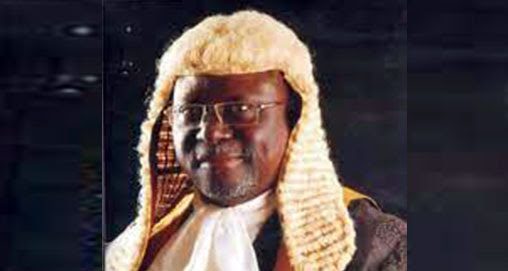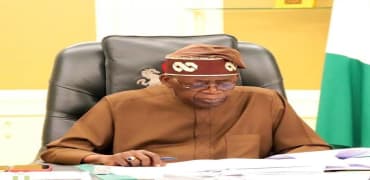ACF Suspends Chairman Over Anti-Tinubu Comments; Afenifere, Others Rally Behind The President
ACF Suspends Chairman Over Anti-Tinubu Comments; Afenifere, Others Rally Behind President
By Achimi Muktar
In a dramatic turn of events, the Arewa Consultative Forum (ACF) has suspended its chairman, Mamman Osuman, after his controversial remarks criticizing President Bola Tinubu’s economic policies. Osuman’s comments, made during a National Executive Council (NEC) meeting in Kaduna, sparked a firestorm of reactions, particularly in the North, where many felt his words undermined the region's unity.
The ACF, a leading northern socio-cultural organization, had initially voiced dissatisfaction with the current administration’s economic direction, claiming it exacerbated poverty in the northern states. In a statement released following the NEC meeting, the forum called on Tinubu to reconsider his policies, arguing that they had deepened the hardships faced by millions in Northern Nigeria.
However, things took a swift turn when the ACF issued a statement suspending Osuman, distancing itself from his calls for a northern presidential candidate in the 2027 elections. The letter, signed by the ACF’s Secretary-General Murtala Aliyu, emphasized that Osuman’s comments were personal opinions and had not been discussed or endorsed by the broader leadership of the forum.
The suspension quickly drew responses from various political players across the country. The Special Adviser to the President on Policy Communication, Daniel Bwala, downplayed the remarks, stressing that it was premature to discuss 2027 presidential candidates and that Tinubu remained focused on governance, citing his recent participation in the G20 Summit to address global challenges like hunger and climate change.
The ruling All Progressives Congress (APC) echoed this sentiment, stating that while the ACF had the right to express its views, it could not claim to represent the entire North. The APC further emphasized that the power to choose a president ultimately rested with the people.
On the other hand, opposition parties like the Labour Party and Peoples Democratic Party (PDP) were quick to criticize the ACF’s stance. Labour Party spokesperson Obiora Ifoh argued that the region’s economic struggles were not a matter of geography but governance, highlighting that the North had experienced similar challenges under former President Muhammadu Buhari, a northerner. The PDP's Timothy Osadolor also condemned the timing of the ACF's statement, questioning whether it was part of a larger political maneuver ahead of 2027.
In stark contrast, the Afenifere group, a Yoruba socio-political organization, took a more measured stance. While acknowledging the failings of Tinubu’s policies, Afenifere spokesman Gboyega Adejumo pointed out that the North’s poverty issues predated this administration and were rooted in long-standing practices, including the Almajiri system and a high rate of out-of-school children. He warned that placing the blame solely on Tinubu was unfair.
Similarly, the Igbo socio-cultural group, Ohanaeze Ndigbo, also refrained from laying the blame entirely at Tinubu’s feet, urging the North to recognize that the economic crisis began under Buhari's leadership. Acting President-General of Ohanaeze, Damian Okeke-Ogene, reminded the ACF that economic hardship knows no ethnic boundaries and that the entire nation was grappling with the fallout of failed policies.
Meanwhile, the Middle Belt Forum expressed its frustration with the ACF, questioning why it had remained silent during Buhari’s presidency when the very policies now criticized were first implemented. In Benue State, regional groups distanced themselves from the ACF’s position, declaring their support for President Tinubu, should he seek re-election in 2027.
The League of Northern Democrats (LND), led by former Kano State Governor Ibrahim Shekarau, took a bold step by forming an alliance with the ACF, Northern Elders Forum, and the Middle Belt Forum. The coalition is poised to influence the political landscape ahead of the 2027 elections, positioning the North as a key player in shaping Nigeria’s future.
As the debate rages on, it is clear that the road to the 2027 elections will be fraught with division, but also with potential for new political alliances. Whether the North can unite behind a single candidate remains to be seen, but for now, the ACF’s suspension of its chairman has set the stage for what could be a heated political season.





















